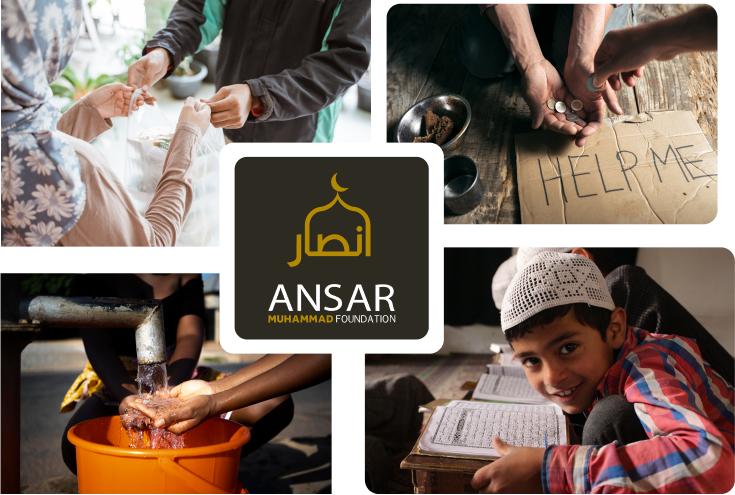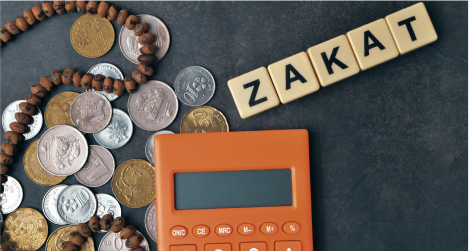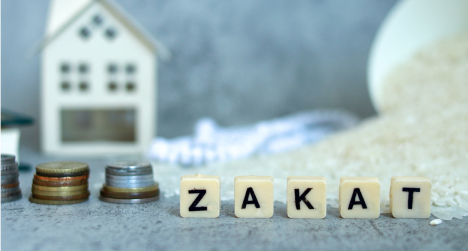What is Zakat?
An obligatory annual payment, Zakat is paid by qualifying adult Muslims whose wealth exceeds the Nisab value for one Islamic (lunar) year. This donation pleases Allah (SWT). Payments are made to support those most in need both domestically and around the world.
Zakat is one of the five pillars of Islam. This means that zakat is mandatory for Muslims, along with the other four sacred pillars of prayer (salah), fasting (sawm), pilgrimage (Hajj) and belief in Allah and His Messenger, Prophet Muhammad (peace be upon him) (shahadah). For every sane, adult Muslim who owns wealth over a certain amount – known as the Nisab – he or she must pay 2.5% of that wealth as zakat.


How much Zakat is to be paid?
Your Zakat donation should amount to 2.5% of your total zakatable wealth. Therefore, if your total assets (after any debts owed) amounted to $10,000, you would pay $250. Use our free and easy Zakat Calculator to calculate how much you owe.
Eligible Muslims pay zakat once a year, and it is due as soon as one lunar (Islamic) year has passed since meeting or exceeding the nisab (certain amount of wealth). The zakat of every Muslim is then distributed to those who meet the criteria to receive it. At AMF, your zakat is distributed with the utmost care to ensure that the most vulnerable, including children, those affected by war, disease and climate disasters, have access to the help that they need.

GOLD NISAB
(87.48g)
$6,713.47
(As of: July 27, 2024)

SILVER NISAB
(612.36g)
$549.72
(As of: July 27, 2024)
Zakat Resources

THE IMPACT OF YOUR ZAKAT DONATION
The majority of the work that AMF do is Zakat eligible. We carry out projects in over 30 countries, distributing food and water, improving healthcare provisions, allowing greater access to education and supporting some of the most disadvantaged communities in the world.
With almost three decades of experience helping the most vulnerable, we continually strive to push ourselves and create a fairer, safer world that empowers those we help. When you give Zakat, you are supporting this vision.
Our Zakat Service

We’ve been distributing Zakat for almost 30 years

We’ve distributed Zakat to over 7.2M people since last Ramadan

We distribute Zakat in 37 countries
Frequently Asked Questions
Q. Who must pay Zakat?
A. Muslims past the age of puberty and are of sound mind are eligible to pay Zakat as long as they meet the required Nisab threshold.
In order to be eligible to pay Zakat, your level of excess wealth must remain higher than the Nisab value for a full year. This is when your Zakat payment will be due.
Q. What type of wealth is Zakat due on?
- Zakat is due on:
Gold and silver, including ornaments or jewellery containing gold and/or silver, Cash held at home or in bank accounts. - Stocks and shares owned either directly or through investment funds, Money lent to others.
- Business stock in trade and merchandise. Agricultural produce.
- Livestock animals such as cows, goats and sheep. Pensions, Property owned for investment purposes.
Q. When should I pay my Zakat?
Zakat is due a year after your level of personal wealth has reached the Nisab threshold. In order to remain eligible to pay Zakat, your level of excess wealth should remain higher than the Nisab for a full lunar year.
For example, if your level of expendable wealth exceeds the total Nisab value in the month of Ramadan, your payment will not be due until the following Ramadan, so long as your personal wealth remains above the threshold.
If at any time your wealth drops below the level of Nisab, you would cease being eligible to give Zakat. Once your wealth increases to the Nisab level, you would begin counting 12 lunar months from that point onwards.
Q. Can I pay my Zakat in instalments?
Zakat can be paid in monthly instalments. To do this, divide the total amount of Zakat owed by 12 and set up a regular payment with Muslim Hands specifying Zakat as the type of donation.
Sponsoring an orphan is also another good way to give your Zakat on a monthly basis.
Q. Who can receive Zakat?
There are eight categories as outlined in the Qur’an:
The poor, those in debt, the wayfarer, those in the cause of Allah (SWT), the needy, those whose hearts are to be reconciled, to free those in captivity and those who collect and distribute Zakat payments.
Chapter (9) sūrat l-tawbah (The Repentance)
Q. Should I pay my missed Zakat?
If you have not paid Zakat from previous years in which you were eligible to do so, you must pay what you owe as soon as possible.
Missed Zakat would be calculated in the same way you calculate your current Zakat – however, you would use the Nisab value from the missed Zakat year, as opposed to the current Nisab value.
Contact us
Welcome to AMF for Charity, where your generosity transforms lives. At AMF, we are dedicated to serving our community through Islamic principles of compassion and giving. Whether you’re interested in fulfilling your religious obligations through zakat, sadaqa, or sadaq e jariyah, or joining hands with us in impactful campaigns such as building mosques, supporting education, sponsoring orphans, running food banks, or providing medical aid, we invite you to be a part of our mission.
Contact us today to learn more about our work, how you can get involved, or to share your ideas and suggestions. Together, we can make a difference that reverberates far beyond our own lives
- info@amfrelief.com



